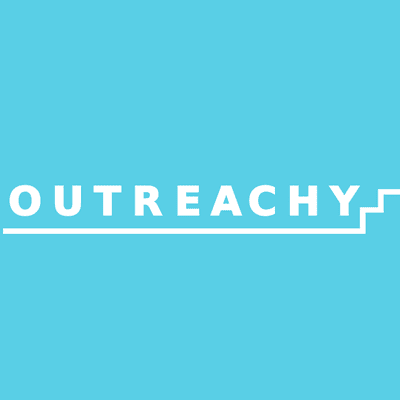From Western Kenya to the World: How Open Source Changed My Journey
The Struggles of Education in My Hometown
Growing up in Western Kenya, education wasn’t a given—it was a privilege. It wasn’t something that everyone around me had access to, and for those lucky enough to get it, the journey often meant leaving home, traveling far in search of better opportunities. It always puzzled me: Why do we have to go so far to chase knowledge?
I was one of the fortunate ones. I got my chance. I went to school, then university. But even when I stepped onto campus, I didn’t fully grasp what was out there. My first year? A blur. A cycle of lectures, assignments, and barely scratching the surface of what was possible. I was just existing, not really exploring.
Then came my second year. And one hackathon changed everything.
The Turning Point: A Hackathon That Opened My Eyes
I still remember that day—signing up for my first hackathon, feeling completely out of place. I wasn’t the smartest coder in the room. I wasn’t even sure what I was doing there. But I went anyway. And that single event flipped a switch in my mind.
I saw people building. I saw community. I saw a space where knowledge wasn’t just locked in textbooks but shared freely. The energy was electric, the collaboration exciting. And for the first time, I realized something powerful:
👉 Opportunities aren’t just found—they’re created.
That hackathon led me to tech clubs, open-source communities, and eventually, a place where I felt I truly belonged. I started attending meetups, contributing to projects, and meeting like-minded people who, like me, just needed a door to be opened.
The Challenges: Building a Tech Community in Western Kenya
Even though my journey took off, I quickly realized that not everyone back home had the same chance. Building a strong local tech community wasn’t easy. Some of the biggest challenges we faced were:
🚧 Lack of access to tech resources – Many students don’t have laptops, reliable internet, or even exposure to open-source technologies. This keeps them from participating in global opportunities like Fedora, Outreachy, and Google Summer of Code.
🚧 Low awareness of open source – Many students (myself included, at first) didn’t even know about open-source development, let alone how to contribute. There’s little guidance on where to start.
🚧 Community engagement is hard – Without a strong local tech culture, it’s difficult to keep people engaged. Many join, get excited, but then drop off due to lack of mentorship or opportunities.
What’s Working: The Power of Community
Despite the challenges, we found ways to keep moving forward:
✅ Local meetups & student clubs – Universities became the hubs of tech growth. By joining and eventually leading clubs like Google Developer Students Club, I saw firsthand how mentorship and peer learning made a difference.
✅ Hackathons & workshops – Events like the one that changed my life became critical in helping others find their own paths. Giving students a platform to build and showcase projects boosted confidence and engagement.
✅ Online learning & collaboration – Platforms like GitHub, Fedora, and Open Source projects became lifelines for students in Western Kenya to learn, contribute, and connect with the global tech ecosystem.
How Fedora Can Help Communities Like Mine
Fedora has already built a thriving open-source ecosystem. But for communities in regions like mine, a little more targeted support could go a long way:
💡 Funding for community-driven events – Small grants for hackathons, boot camps, and tech meetups would help students in resource-limited areas engage with Fedora and open source.
💡 Mentorship programs – Connecting experienced Fedora contributors with students from underserved communities could help bridge the knowledge gap.
💡 Localized beginner-friendly resources – More documentation, courses, and workshops tailored to absolute beginners in open-source development would help bring more people into the Fedora community.
💡 Hardware support initiatives – Partnering with organizations to provide refurbished laptops or sponsorships for underprivileged students would open doors for more contributors.
Final Thoughts: From Western Kenya to the World
If someone had told me back in my first year of university that I’d be contributing to global open-source projects, I would have laughed. But here I am, proof that where you come from doesn’t have to define where you go.
The journey from my small town in Western Kenya to becoming part of the open-source world wasn’t easy, but it was worth it. And I know there are many more students out there—just like I was—waiting for that one opportunity to change everything.
If we can make open source more accessible, more inclusive, and more supportive of underserved communities, we won’t just be building software—we’ll be building futures.
🚀 Let’s make it happen.


Comments
Post a Comment